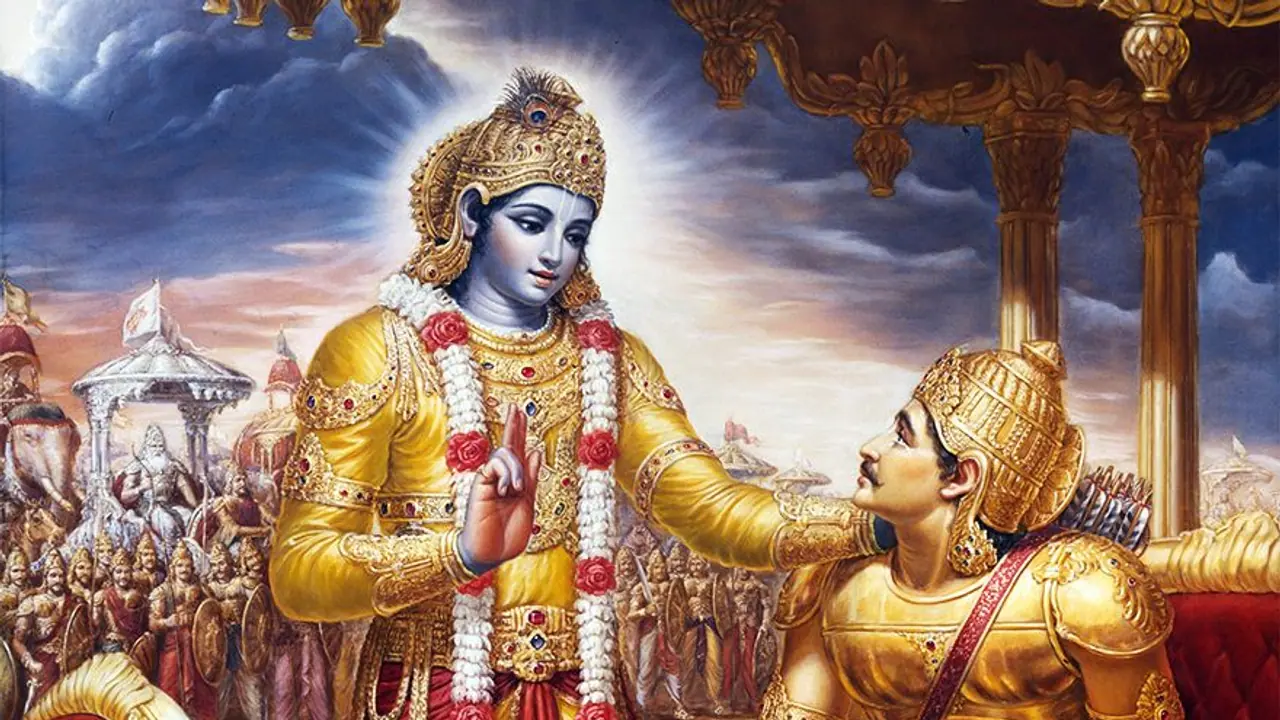Why should Bhagavad Gita not be part of the curriculum in Anna University, Tamil Nadu, for those choosing to study philosophy? Bhagavad Gita is less a Hindu religious book but more an eloquent document on dealing with existential crisis in life.
An unseemly, but not wholly surprising, controversy has broken out in Tamil Nadu after news broke out that Bhagavad Gita and Yoga have been included as part of the 3rd semester curriculum for students studying under the ambit of Anna University.
The reactions were typical and expected lines.
“This is Sanskritisation of education.”
“Another game plan by the Hindutva brigade.”
“Why teach Bhagavad Gita to engineering students?”
But on closer inquiry, it emerged that Anna University has not exactly initiated Bhagavad Gita and Yoga as part of the curriculum. Apparently, it is only a recommendation from All India Council or Technical Education, and as such Anna University has not decided on the matter.
Also, the subjects are only part of the philosophy curriculum, which is an elective subject only.
As things stand now, Bhagavad Gita has not become part of the curriculum in Anna University as the usual suspects on social media platforms believe.
But the real topic that should be debated is why should Bhagavad Gita not be part of the curriculum for those choosing to study philosophy.
One doesn’t have to be a scholar to say that Bhagavad Gita, probably the oldest treatise in the world, is less a Hindu religious book but more an eloquent document on dealing with existential crisis in life.
If anything, Bhagavad Gita does not even mention the word ‘Hindu’, and it refers to only ‘Sanatana Dharma’, which when loosely translated means: Eternal Religion.
“It is a fact that many Hindus take Gita to be their ‘holy book’, but quite unlike in other religions, Hinduism does not have one prescribed text. Bhagawat Gita has universal truths,” said professor S Aruna, who works in a private university.
“If you have chosen to study philosophy, you have to but read the Gita. It is the sine qua non for understanding philosophy without the trappings of religion,” she added.
But why think of introducing Bhagavad Gita given its religious background is what the critics ask.
“Why not? I ask back,” said K Ramakrishnan, another academician in Chennai. “India is a secular country, but its culture and traditions are undeniably Hindu and you can legitimately fall back on it. America is a secular country too. But even there biblical studies are taught as electives in their public schools. Christianity is part of their culture. They don’t shy away from that fact. Why should we live in denial of the Hindu lineage of this land?”
Many academics feel reading religious and spiritual texts as part of the curriculum is not a problem as long as the course does not endorse, favour, or promote or disfavour or show hostility towards any other religion.
When bible study was sought to be included in school syllabus (as an elective) in public schools in some States in the US, many argued in favour of it since “the Bible is a 2,000-year-old document” and has historical significance on how the nation was formed.
Also, it is not just Bhagavad Gita, which is part of suggested reading for the Anna University course. Plato’s The Republic, Francis Bacon’s Power as Knowledge, among others have also been included.
“The criticism against Bhagavad Gita comes from an insecure place. The course talks of understanding and western and eastern traditions. Bhagavad Gita is one of the study materials. If eastern philosophical study has no place for the Gita, then that course is useless,” said a professor at Anna University, who wished to remain anonymous.
But given the mood in Tamil Nadu now, the AICTE recommendation may go unimplemented in Anna University.
“If we don’t take pride in reading the Gita and shun it, the loss is entirely ours,” the professor added wryly.
